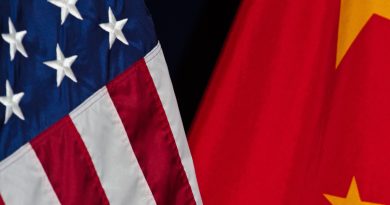United States Lifts Travel Ban on International Criminal Court Prosecutor Fatou Bensouda
Lauren-Marie Diawatan
Staff Writer
On April 2, the United States lifted the sanctions and a travel ban on Fatou Bensouda, the chief prosecutor of the International Criminal Court (ICC), according to The Guardian.
Mike Pompeo, the Secretary of State during the Trump Administration, placed the restrictions on Bensouda in 2019 following her decision to investigate alleged war crimes committed by U.S. military personnel in Afghanistan. The Court caused even more friction with the United States when it launched an investigation into alleged war crimes by Israel, a U.S. ally, in Palestinian territories. BBC News reports that the United States has also lifted the visa restrictions on I.C.C. personnel and the travel sanction of Phakiso Mochochoko, the head of the I.C.C.’s Jurisdiction, Complementarity, and Cooperation Division.
Chief Prosecutor Bensouda filed her request to the ICC in November 2017 to investigate torture, rape, and other atrocities committed in Afghanistan, says The New York Times. Bensouda stated that a preliminary examination of evidence, starting in 2006, gave her “reasonable basis to believe” that crimes were committed by members of the Taliban, the Afghan National Security Forces, American armed forces, and the Central Intelligence Agency, including abuses in secret detention facilities in Afghanistan, Poland, Romania, and Lithuania.
In a press statement, current Secretary of State, Antony J. Blinken, affirmed that the United States continues to object to the ICC’s assertion of jurisdiction over the nationals of states that do not recognize the Court. However, he emphasized that “our concerns about these cases would better be addressed through engagement with all stakeholders in the ICC process.”
The International Criminal Court is seated in The Hague in the Netherlands, writes BBC News. The court’s mandate, the Rome Statute, came into effect in July 2002 and was signed by 123 countries to prosecute and bring to justice those responsible for atrocity crimes like war crimes, crimes against humanity, and genocide. The ICC acts as a court of last resort, meaning that it can intervene when states refuse to or cannot prosecute offenses. Only states that have signed the Rome Statute are legally bound to cooperate with the Court – the United States and Israel are two non-signatory states.
Human Rights Watch commended the United States’ decision to remove the sanctions against the ICC, saying that it eliminated a significant obstacle in the pursuit of providing justice against global atrocity crimes. The organization called on ICC member countries to “act on the lessons of the executive order’s repeal and voice their support for the court,” and be prepared to safeguard its role against actions “aimed at undermining its independence as a court.” The organization had previously pressed the Biden Administration to prioritize the withdrawal of Trump’s executive order. With its withdrawal, Human Rights Watch called for the U.S. government to “seek regularized cooperation with the ICC,” stating that country’s participation even as a non-member would advance the court’s cases by cooperating in arrests, providing evidence, and endorsing UN Security Council decisions to bolster the court.
The international director of Human Rights Watch, Richard Dicker, stated that President Biden’s decision to rescind the Trump administration’s order began “the long process of restoring U.S. credibility on international justice through the ICC.”
Photo courtesy of Heinrich-Böll-Stiftung (Flickr)




